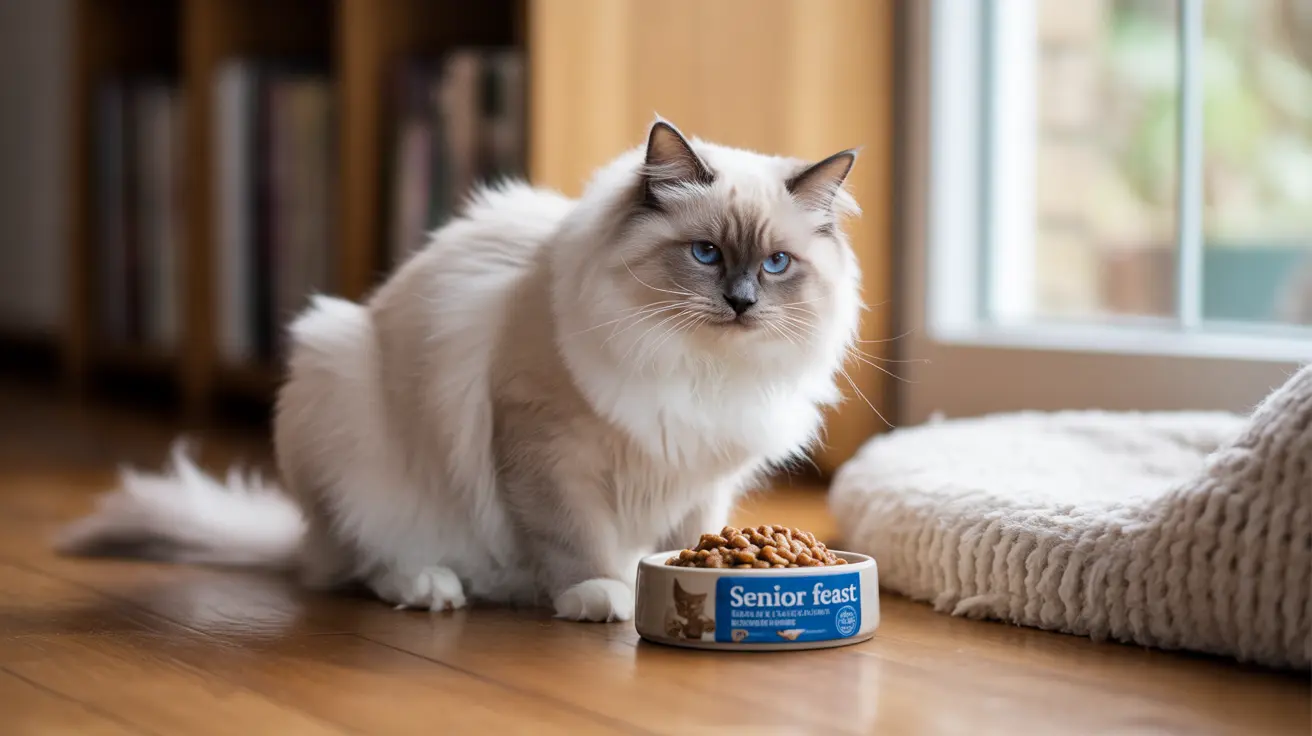As cats enter their golden years, their nutritional needs undergo significant changes, particularly regarding protein requirements. Many pet owners are surprised to learn that senior cats often need more protein, not less, as they age. This comprehensive guide explores why protein becomes increasingly crucial for aging cats and how to ensure they get the right amount to maintain their health and vitality.
Understanding your senior cat's protein needs is essential for preventing age-related muscle loss and maintaining their overall well-being. Let's dive into the science behind protein requirements for older cats and discover how to best support their nutritional needs.
Understanding Protein Requirements in Aging Cats
Senior cats, particularly those over 10 years old, experience decreased protein digestion and absorption efficiency. This biological change means they actually need more protein to maintain healthy muscle mass and support essential bodily functions. Research indicates that healthy senior cats should consume between 6-8.5 grams of protein per kilogram of body weight daily, which is significantly higher than their younger counterparts.
Why Senior Cats Need Increased Protein
Age-Related Metabolic Changes
As cats age, their bodies become less efficient at metabolizing nutrients, including protein. This decreased efficiency means they need higher quantities of high-quality protein to maintain muscle mass and support immune function. Without adequate protein intake, senior cats are at risk of developing sarcopenia, a condition characterized by progressive muscle loss.
Impact on Muscle Mass and Health
Protein plays a crucial role in maintaining lean muscle mass, which becomes increasingly challenging as cats age. Studies show that insufficient protein intake can accelerate muscle wasting in senior cats, potentially affecting their mobility, strength, and overall quality of life.
Selecting the Right Protein Sources
High-Quality Animal Proteins
The best protein sources for senior cats come from animal-based ingredients, which are more biologically appropriate and easier to digest. Look for foods containing:
- Premium muscle meats (chicken, turkey, beef)
- Fish-based proteins
- Organ meats
- Egg proteins
Digestibility Matters
Senior cats benefit most from highly digestible protein sources that their aging digestive systems can efficiently process. Commercial foods specifically formulated for senior cats should contain protein levels between 30-45% on a dry matter basis, with some experts recommending even higher levels for cats over 12 years old.
Practical Feeding Recommendations
To ensure your senior cat receives adequate protein:
- Choose wet food formulations that provide both protein and moisture
- Look for foods specifically labeled for senior cats with high protein content
- Consider supplementing with protein-rich treats when appropriate
- Monitor your cat's weight and muscle condition regularly
Special Health Considerations
While protein is crucial for senior cats, those with specific health conditions may need modified diets. Always consult with your veterinarian before making significant changes to your senior cat's diet, especially if they have kidney disease or other health concerns that might affect protein requirements.
Frequently Asked Questions
Do senior cats need more protein in their diet compared to younger cats?
Yes, senior cats typically need more protein than younger cats because their bodies become less efficient at metabolizing and utilizing protein as they age. This increased need helps maintain muscle mass and support overall health.
Why is high-quality and highly digestible protein important for older cats?
High-quality, digestible protein is crucial for older cats because their digestive systems become less efficient with age. Quality protein sources ensure better nutrient absorption and help prevent muscle loss while supporting immune function.
How can I ensure my senior cat gets enough protein if their appetite decreases?
Offer highly palatable, protein-rich wet foods, warm food slightly to enhance aroma, feed smaller meals more frequently, and consider protein supplements approved by your veterinarian.
Should I restrict protein in my senior cat's diet if they have kidney problems?
Protein restriction should only be implemented under veterinary guidance and typically only in cases of advanced kidney disease. Moderate protein reduction might be recommended, but excessive restriction can be harmful.
What are the best protein sources to feed a healthy senior cat to maintain muscle mass?
The best protein sources for senior cats include high-quality animal proteins such as chicken, turkey, fish, and eggs. These proteins should be highly digestible and preferably from whole meat sources rather than by-products.
Conclusion
Meeting the protein needs of senior cats is crucial for maintaining their health and quality of life. By understanding their increased protein requirements and choosing appropriate, high-quality protein sources, you can help your aging feline companion stay healthy and active well into their senior years. Regular veterinary check-ups and monitoring of your cat's condition will ensure their nutritional needs continue to be met as they age.






